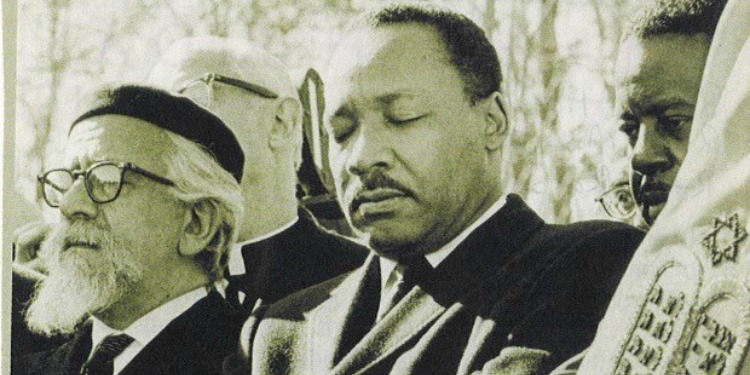An Oasis of Brotherhood and Democracy
Rabbi Yechiel Eckstein | January 10, 2018

Dear Friend of Israel,
April will mark 50 years since the death of Dr. Martin Luther King, Jr. I often wonder what he would think, if he were alive today, of the strides the U.S. has made toward racial equality, and how he would view the challenges that still exist.
My greatest recollections of Dr. Martin Luther King are not only of his inspiring leadership, or his incredible ability to express his vision and passion through public speaking. What I recall is that Dr. King was a man of principle. The dictates of his Christian faith led him to put himself at great personal risk — risk that eventually cost him his life — to stand for what he knew was right.
Rabbi Abraham Joshua Heschel, one of the leading Jewish thinkers of the 20th century and a mentor and inspiration to me personally, shared Dr King’s conviction that securing equal rights for African Americans was a moral imperative. Heschel once said, “racism is man’s gravest threat to man, the maximum of hatred for a minimum of reason, the maximum of cruelty for a minimum of thinking.” This led him to march with Dr. King and other civil rights leaders to protest institutionalized discrimination in American society.
Thus, both Dr. King and Rabbi Heschel were people who, as the expression goes, “gave feet to their faith.” They didn’t stay in an ivory tower or in the pulpit or in the university. They went among their people like Moses did; when Moses saw the oppression of his people, the Jewish people, he helped deliver them from bondage.
On Monday, January 15, as Americans observe Martin Luther King Jr. Day, they will rightly remember Dr. King for his pivotal role in the U.S. Civil Rights Movement. What is less known – but also well worth remembering – is that Dr. King was a staunch supporter of Israel. At a 1968 national rabbinical convention, he said, “I see Israel as one of the great outposts of democracy in the world, and a marvelous example of what can be done, how desert land can be transformed into an oasis of brotherhood and democracy.”
Dr. King stood on the steps of the Lincoln Memorial in Washington, D.C., in 1963 and spoke of a day when all people would “not be judged by the color of their skin but by the content of their character.” May we remember his words this coming Monday as we reflect on how far we have come in terms of racial equality, and, considering the significant strides yet to be made, choose to do our utmost as we seek to honor and emulate our God of love, peace, and justice.
With prayers for shalom, peace,
Rabbi Yechiel Eckstein
Founder and President
